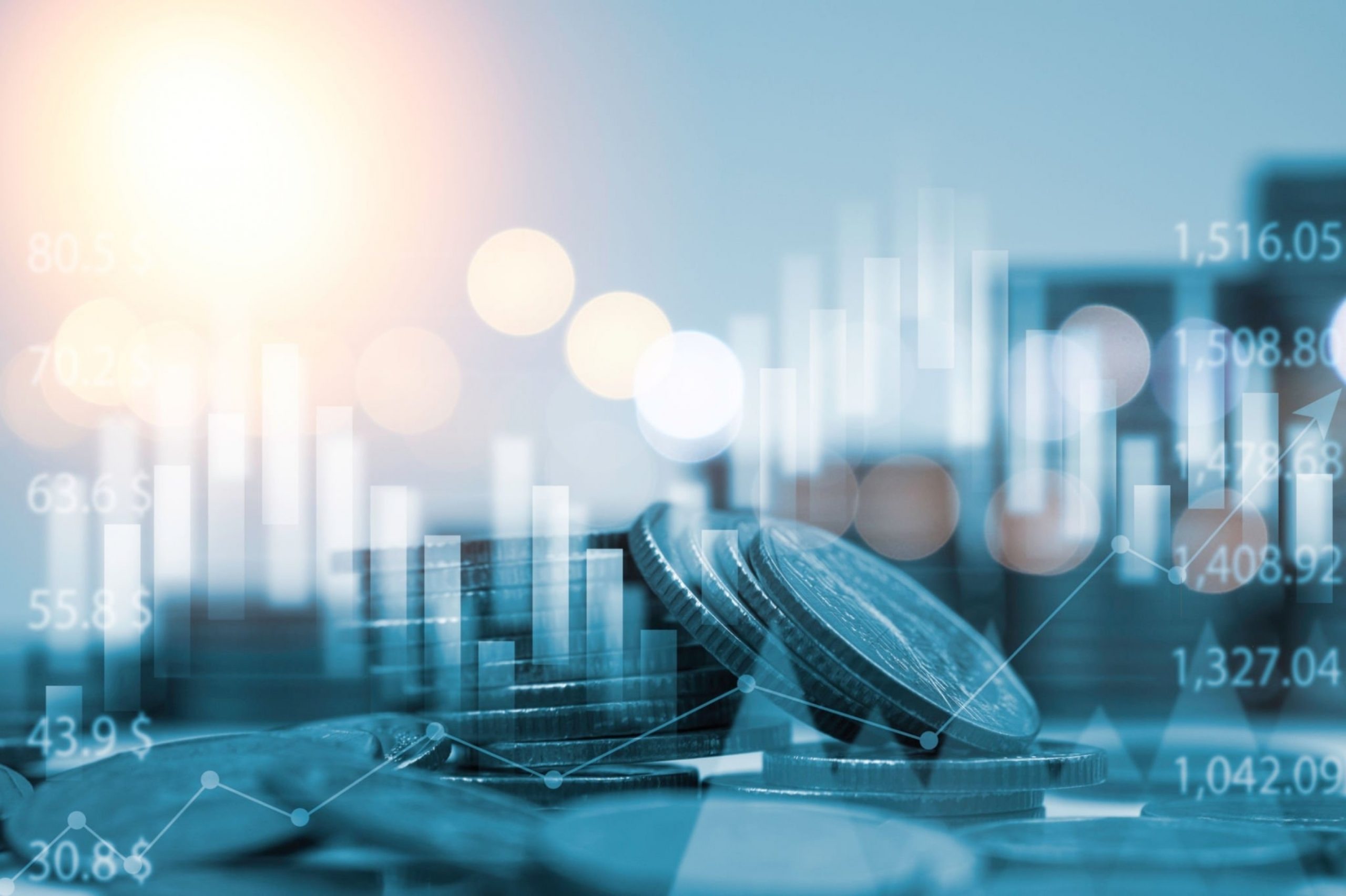This article is all about the basics of Forex capital markets, the factors that forms the foundation – like how it works, who’s involved, and the important ideas.
Forex Capital Markets: Understanding the Basics of Forex Trading
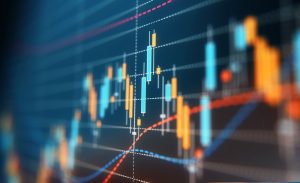
The big world of finance has a special place called Forex Capital Markets, or just Forex. It’s like a giant marketplace where people trade one country’s money for another’s. Forex is the biggest financial market globally, and it’s responsible for more than $6 trillion in trading every day. To get how this huge market works, you need to know the simple stuff about it.
What is Forex Capital Markets?
Forex Capital Markets, or Forex for short, is a place where people trade different currencies. The name comes from “foreign exchange,” which means swapping one country’s money for another’s. Unlike regular stock markets that have a home base, Forex happens online 24 hours a day, five days a week because it’s a worldwide thing.
Who Plays in the Forex Game?
To understand Forex, you should know who plays in it. There are different kinds of players:
- Regular Folks: People like you and me can trade in Forex. We use online platforms offered by companies called brokers. We do it for lots of reasons, like trying to make money or protecting against money changes.
- Big Shots: Big finance groups, like banks, rich people, and big companies, are also in the Forex game. They trade either for themselves or for their customers. They often make huge deals that can shake up currency prices.
- Central Banks: These are like the bosses of a country’s money. In the U.S., it’s the Federal Reserve (Fed), and in Europe, it’s the European Central Bank (ECB). They’re super important because they can change the value of a country’s money by deciding things like interest rates.
- Regular Banks: Banks you and I use are also in on it. They help people trade currencies and make some money from it. They’re the go-between for regular folks and the big players.
- Brokers: These are the companies that let regular folks like us trade in Forex. They give us the tools and access to different money pairs. Picking a good broker is really important.
Currency Pairs
Forex isn’t like trading one thing for another. You always trade one currency against another in pairs. Each pair has two currencies: the main one and the other one.
For example, in the EUR/USD pair, the Euro (EUR) is the main one, and the U.S. Dollar (USD) is the other one. The exchange rate shows how much of the second currency you need to buy one unit of the first one.
How Forex Trading Works
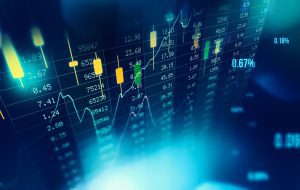
Forex trading is about guessing whether a currency will go up or down in value. To make a trade, you pick a currency pair, say how much you want to trade, and decide if you think the main currency will get stronger (buy) or weaker (sell). Your profit or loss comes from whether you guessed right about the price direction.
Leverage and Margin
In Forex, people often use something called leverage. It’s like a financial tool that lets you control a big trade with only a little money. But, it’s a double-edged sword. While it can make you more money, it can also make you lose more. So, you have to be careful and use tools like stop-loss orders to protect yourself.
Forex Capital Markets are like a big playground for money trading. It’s a global thing that never sleeps, and it’s where people trade one country’s money for another’s. In this article, we’ve looked at the basic ideas of Forex, like who’s involved, the pairs you can trade, how trading works, and what makes prices change.
If you’re thinking about joining the Forex game or just want to understand more about how money moves in the world, these basics are a good place to start. It’s like learning the ABCs before diving into a big book!
What Makes Forex Capital Markets Tick

Forex Capital Markets, or Forex for short, is like a giant global playground for trading money. It’s the biggest of its kind, with a whopping $6 trillion traded every single day.
To really get what makes Forex work, you’ve got to understand the things that control it. In this in-depth article, we’ll break down the various factors that shape Forex Capital Markets, the things that make currencies go up and down, and how it all comes together.
Economic Indicators
Economic indicators, is where we start. These are like reports that tell us how a country’s doing financially. They’re super important in Forex. Here are some of them:
- Gross Domestic Product (GDP): GDP is like a scorecard for a country’s economy. When it goes up, it means the economy is growing and healthy, and that can make the country’s currency stronger.
- Unemployment Rate: This tells us how many people are out of work. High unemployment can be a bad sign for an economy, and it might weaken the currency.
- Inflation Rate: Inflation means stuff is getting more expensive. When it’s under control, it’s a good sign, but if it gets too high, it can eat away at a currency’s value.
- Consumer Confidence: This is like a measure of how confident regular folks are in the economy. When people feel good about things, they spend more, which can boost the economy and the currency.
2. Interest Rates
Interest rates are like the magic wand of central banks. These are the big banks that make the rules for a country’s money. They can change interest rates, and that has a big impact:
- Higher Interest Rates: When a country’s central bank raises interest rates, it’s like offering a sweet deal to investors. They get more money back on their investments, so they want more of that country’s currency. This can make the currency stronger.
- Lower Interest Rates: When interest rates drop, it’s not so attractive for investors. They might look elsewhere for better deals, which can weaken the currency.
The decisions about interest rates are like the star show in Forex. Everyone watches to see what the central banks will do because it can make currencies jump up or down.
3. World Events
World events can be like a wild rollercoaster for Forex. Things like elections, trade disputes, or wars can have a big effect on currencies. Big events can make traders nervous or excited, and that can make currencies move a lot.
4. What People Think
Sometimes, it’s not just the facts that matter; it’s what people think. If lots of people believe a currency will get stronger, they’ll buy it, and that can actually make it stronger. So, it’s not just the news; it’s what people believe that counts sometimes.
5. How Easy It Is To Trade
Some currencies are like the popular kids in school, and everyone wants to trade them. These are the major currency pairs, like EUR/USD or GBP/USD. They’re easy to trade because lots of people want them. But there are other currencies, the exotic ones, that not many people want. Trading them can be harder and riskier because they don’t move as smoothly.
So, Forex Capital Markets are like a giant puzzle, and these factors are the pieces that fit together to make it all work. Economic stuff tells us how a country’s doing, interest rates are like the boss moves, world events can be like storms, what people think can make things happen, and how easy it is to trade can make a currency more or less popular.
Understanding all these pieces is like having a map in the Forex world. It helps traders figure out where to go and what to do. It’s like knowing the rules of a game before playing. With these basics, you’re better prepared to step into the world of Forex Capital Markets and try your hand at trading currencies. Remember, it’s not just about luck; it’s about understanding how these pieces fit together in the big puzzle of Forex.
Protecting Your Money: Managing Risk in Forex Trading

Forex Capital Markets, or Forex, can be like a thrilling rollercoaster ride. It offers opportunities for profit, but it also comes with risks. Imagine this: you’re predicting whether a currency’s value will go up or down, and your predictions can lead to either profits or losses.
In this detailed subheading, we’re going to talk about why it’s essential to manage these risks in Forex trading and some easy-to-understand strategies to keep your money safe.
Understanding Risk in Forex Capital Markets
Before we get into the strategies, let’s get a clear picture of what we mean by “risk” in Forex. In Forex trading, you’re trying to guess if a currency’s price will rise or fall. But here’s the tricky part – it can go either way, and it can happen quickly. So, there are a few risk factors to keep in mind:
Leverage:
Forex allows you to control a big trade with a small amount of money – it’s like a financial magic trick. But here’s the catch: it can multiply both your profits and your losses. So, be careful when using leverage.
Market Volatility:
Forex is known for being a bit like a rollercoaster ride. Prices can suddenly shoot up or drop down, often due to unexpected events, like economic reports or big news.
Overtrading:
Sometimes, traders get a bit carried away. They might take on too many trades, especially if they’re trying to recover losses. This can quickly drain your account and is a common mistake, especially for new traders.
No Risk Management:
Without proper strategies to manage risk, you could end up losing a lot of money. It’s like going into a game without knowing the rules.
The Importance of Risk Management in Forex Trading
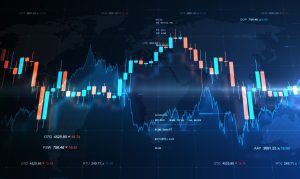
Now, why is managing risk so crucial in Forex trading? Well, there are a few good reasons:
- Protecting Your Money: The most important reason is to keep your trading capital safe. By controlling risks, you make sure that even if you hit a rough patch, you’ll still have money to trade with.
- Keeping Emotions in Check: Trading can be emotional. When a trade doesn’t go your way, you might feel fear or greed. Proper risk management helps you stay level-headed and make rational decisions.
- Consistency: In Forex, being consistent is key. If you have a plan for managing risk, you’re more likely to approach each trade the same way. It’s like following a recipe – you get the same dish every time.
Risk Management Strategies in Forex Trading

Now, let’s talk about some easy-to-understand strategies to manage risk in Forex Capital Markets:
Position Size
This means deciding how much money you’ll put into each trade. A common rule is not to risk more than 1-2% of your total trading capital on a single trade. This way, even if you lose, it won’t hurt your account too much.
Stop-Loss Orders
Think of this as your safety net. A stop-loss order is like setting a limit on how much you’re willing to lose on a trade. If the market goes against you, it’ll automatically exit the trade, limiting your loss to an amount you’re comfortable with.
Take-Profit Orders:
Just like a stop-loss, a take-profit order sets a target for when you want to lock in your profits. It ensures you don’t get too greedy and lets you secure your gains.
Diversification
This is like not putting all your eggs in one basket. Instead of focusing on just one currency pair, diversify your trades. This way, if one trade goes south, others may still be profitable.
Risk-Reward Ratio:
Here, you’re looking at the relationship between how much you could lose (risk) and how much you could gain (reward) in a trade. A common rule is to aim for a risk-reward ratio of at least 1:2. It means your potential profit should be at least twice the potential loss.
Trailing Stops:
Trailing stops move with the price as it moves in your favor. It allows you to capture more profit if the market goes your way while still protecting against sudden reversals.
Regular Risk Check:
Keep an eye on how much risk you’re comfortable with. If you’re losing more than you can handle, consider reducing the size of your trades or taking a break to reassess your strategy.
In the world of Forex trading within Forex Capital Markets, the potential for profit is alluring, but it comes with risks. Effective risk management is your shield against those risks.
By implementing strategies like position sizing, stop-loss orders, take-profit orders, diversification, risk-reward ratios, and by regularly assessing your risk tolerance, you protect your capital, stay in control of your emotions, and maintain consistency in your trading. Remember, in Forex, the name of the game is risk management – it’s what keeps you in the game for the long run.
Conclusion
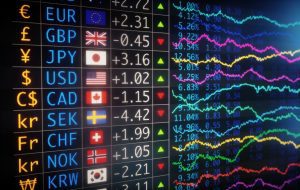
In the world of Forex Capital Markets, understanding the basics, recognizing influencing factors, and managing risk are essential for success. Forex trading involves buying and selling currencies, a bit like a global money exchange. The basics, like who’s playing and how it works, are your starting point.
Knowing what drives Forex is crucial. Economic indicators, interest rates, world events, people’s feelings, and how easy it is to trade all play a role. It’s like a puzzle where these pieces fit together to create the full picture of Forex.
But with great potential comes great risk. Without risk management, the excitement of trading can lead to losses. Risk management is like a safety net, protecting your money and keeping your emotions in check. Strategies like position sizing, stop-loss and take-profit orders, diversification, and risk-reward ratios help you navigate the risks.
In the end, Forex trading is a journey of opportunity and caution. By understanding the basics, staying informed about influencing factors, and mastering risk management, you’re better prepared to navigate the unpredictable waters of Forex Capital Markets. Remember, success in Forex comes not just from luck but from knowledge, strategy, and discipline.
We Hope you’ve learned a lot from this article!! We’re glad you did. Join our telegram community to get up-to-date news, educational materials, free online classes, market analysis, and crypto futures trade signals that will help you grow and become profitable

